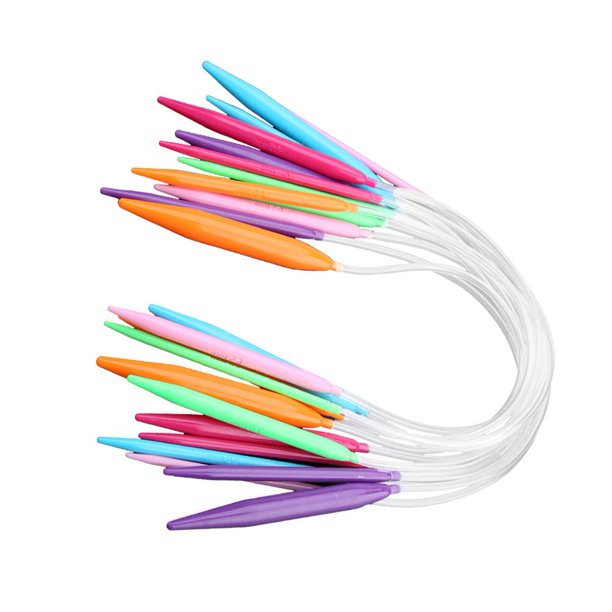
Maintaining your knitting needles is crucial to ensure they last long and remain in good condition. Proper care and maintenance can help you avoid replacing your needles too soon, save money, and ensure a pleasant knitting experience every time you use them. Here are some tips for maintaining your knitting needles:
Store Them Properly
When you’re not using your knitting needles, it’s important to store them properly. The best way to store your knitting needles is in a safe and secure place, such as a needle case or a fabric roll. Storing your needles in a case protects them from dust, dirt, or moisture and ensures that they don’t get lost or damaged. By storing your needles properly, you’ll be able to find them easily when you need them, and they’ll be well-protected when not in use.
Keep Them Clean
Over time, knitting needles can collect dust, dirt, and other debris, which can affect their performance. To maintain your knitting needles’ functionality, it’s important to keep them clean. After each use, wipe your needles with a soft, dry cloth or brush to remove any debris. If they’re particularly dirty, clean them with a slightly damp cloth or use a mild soap solution. Make sure to dry them thoroughly before storing them away.
Avoid Extreme Temperatures
Knitting needles can be sensitive to extreme temperatures. Avoid leaving them in direct sunlight or exposing them to temperatures that are too hot or too cold. Extreme temperatures can cause warping or cracking, which can affect your needles’ performance. Store your needles in a cool and dry place to maintain their shape and performance.
Use Needle Caps
Many knitting needles come with caps that fit over the points when the needles are not in use. This can help protect the points from damage and keep them sharp. It can also help prevent the needles from getting tangled or snagged in your yarn. If your knitting needles didn’t come with caps, you can purchase them separately.
Be Careful When Traveling
If you’re taking your knitting needles with you on the go, make sure to store them in a protective case or wrap them in a soft cloth. Avoid putting them in your checked luggage, as they may get damaged in transit. It’s best to keep them with you in your carry-on luggage, where you can keep an eye on them.
Check for Defects
Before using your knitting needles, inspect them for any defects or signs of wear and tear. Look for cracks, warping, or other damage that could affect their performance. If you notice any defects, it’s best to replace the needles to avoid any issues down the line. It’s also a good idea to check your needles periodically to make sure they’re still in good condition.
Sharpen When Necessary
Over time, the points of your knitting needles may become dull, which can make it harder to knit. If this happens, you can sharpen the points with fine-grit sandpaper or a sharpening stone. Be careful not to over-sharpen, as this can cause the points to become too thin and fragile. Sharpening your knitting needles can help extend their life and improve their performance.
Store Them Flat
When storing your knitting needles, it’s best to store them flat rather than standing upright. This helps prevent warping or bending, which can affect the performance of your needles. If you’re using a needle case, make sure it’s designed to store needles flat. By storing your needles flat, you’ll help maintain their shape and performance.
Oil Wooden Needles
If you’re using wooden knitting needles, it’s a good idea to oil them occasionally to keep them from drying out. Use a food-grade mineral oil or a specialized oil for wooden knitting needles, and rub it onto the needles with a soft cloth. This will help keep the needles in good condition and prevent them from cracking or splitting. Oiling your wooden needles can help extend their life and keep them looking and feeling great.
Use Needle Protectors
If you’re not using your knitting needles for an extended period, it’s a good idea to put them in needle protectors. This can help prevent them from getting bent or damaged while in storage. Needle protectors are typically made of rubber or plastic and slip over the ends of your needles to keep them safe and secure.
In conclusion, maintaining your knitting needles is an essential part of ensuring they last long and remain in good condition. By storing them properly, keeping them clean, avoiding extreme temperatures, using needle caps, being careful when traveling, checking for defects, sharpening when necessary, storing them flat, oiling wooden needles, and using needle protectors, you can help extend your knitting needles’ life and make sure they’re always ready when you need them. Taking care of your knitting needles will not only save you money in the long run but also ensure you have the best possible knitting experience every time you use them.